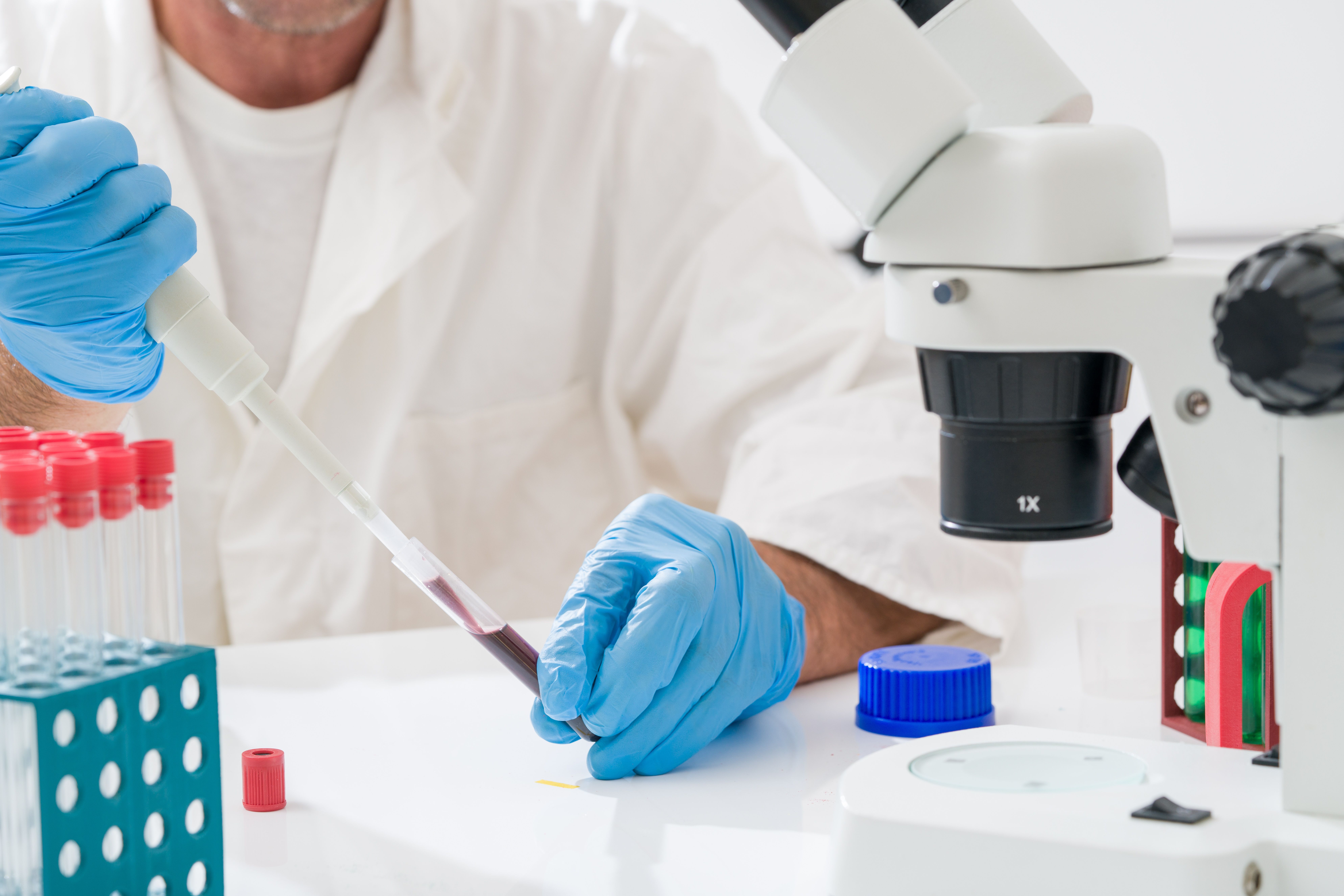- Center on Health Equity & Access
- Clinical
- Health Care Cost
- Health Care Delivery
- Insurance
- Policy
- Technology
- Value-Based Care
Inflammatory Markers Predict Treatment Response to Biologics in Psoriasis
Inflammatory markers can indicate treatment efficacy and predict super-responder status in patients with psoriasis treated with biologics, according to one study.
Blood count–derived inflammatory markers, such as neutrophil-to-lymphocyte ratio (NLR) and systemic inflammation response index (SIRI), can indicate treatment response to biologics, as well as identify super-responder status in patients with psoriasis, a study finds.1
The multicenter retrospective study is published in the Journal of Clinical Medicine.

“Patients with psoriasis present with a high clinical variation during the course of the disease, which could be translated into high variations in the immunological profile of these patients,” wrote the researchers of the study. “As such, different patterns in cytokines expression might be noted from patient to patient and afterward impact how a patient reacts to a specific type of treatment.”
Biologics have become the mainstay of therapy for patients with moderate to severe disease, with therapeutic targets including tumor necrosis factor (TNF), IL-23, IL-12, IL-17A, and IL-17 receptors.2
In this study, the researchers aimed to measure the reliability of blood count–derived inflammatory markers in assessing treatment response to biologics and small-molecule inhibitors in psoriasis.1
The study included biologic-naive patients diagnosed with chronic plaque psoriasis who underwent any biological or small-molecule inhibitor treatment, with available data at treatment initiation, 3-month, 6-month, and 12-month follow-up. Demographics, comorbidities, disease activity, and laboratory data were also collected for all enrolled patients.
Additionally, the following blood count–derived inflammatory markers were calculated and analyzed:
- Neutrophil-to-lymphocyte ratio (NLR)
- Platelet-to-lymphocyte ratio (PLR)
- Platelet-to-monocyte ratio (PMR)
- Monocyte-to-lymphocyte ratio (MLR)
- D-LNR
- SIRI
- Systemic immune index (SII)
- Aggregate index of systemic inflammation (AISI)
The treatment goals included:
- Psoriasis Area Severity Index (PASI) 75 at 3-month mark
- PASI 90 at 6-month follow-up
- PASI 100 at 12-month visit
Patients who achieved PASI 100 at the 6-month visit were considered super-responders.
A total of 240 eligible patients were enrolled in the study, including 143 men, with a mean (SD) age of 50.76 (14.35) years. Men had significantly higher BMI than women (P = .04), but no differences were identified regarding age (P = .68). Additionally, the highest number of patients were treated with ixekizumab (n = 61), followed by risankizumab (n = 44), and secukinumab (n = 41).
All blood count–derived inflammatory markers varied significantly between the 4 visits (P < .005). Disease severity measured by the PASI score (OR, 1.03), scalp involvement (OR, 0.29), advanced age (OR, 0.97), higher baseline values of d-NLR (OR, 0.75), and SIRI (OR, 0.20) predicted super-responses to treatment.
More than half (65.83%) of patients reached the target goal of PASI 90 at 6 months, while 71.66% obtained complete clearance of their lesions at 12 months. Additionally, 77 (32.08%) were super-responders, and most were treated with ixekizumab.
However, the researchers acknowledged some limitations to the study, including being retrospective in design, focused solely on patients with chronic plaque psoriasis, and that longer follow-up is necessary to gain additional information regarding psoriasis evolution under biologics, IL levels, and neutralizing antibodies determination.
Despite these limitations, the researchers believe the study finds that higher baseline values of d-NLR and SIRI are independent predictors of super-responders, suggesting that blood count–derived inflammatory markers can serve as indicators of treatment response to biologics in patients with chronic plaque psoriasis.
“If referring to d-NLR, a blood-count-derived inflammatory marker tested for the first time in the literature regarding the treatment of psoriasis with biologics in our paper, it proved to be an integrative part of reaching the super-responder status,” wrote the researchers.
References
1. Morariu SH, Cotoi OS, Tiucă OM, et al. Blood-count-derived inflammatory markers as predictors of response to biologics and small-molecule inhibitors in psoriasis: a multicenter study. J Clin Med. 2024;13(14):3992. doi:10.3390/jcm13143992
2. Mattina C. Despite expanding array of psoriasis treatments, opportunities for improvement remain. AJMC®. April 23, 2021. Accessed July 29, 2024. https://www.ajmc.com/view/despite-expanding-array-of-psoriasis-treatments-opportunities-for-improvement-remain
